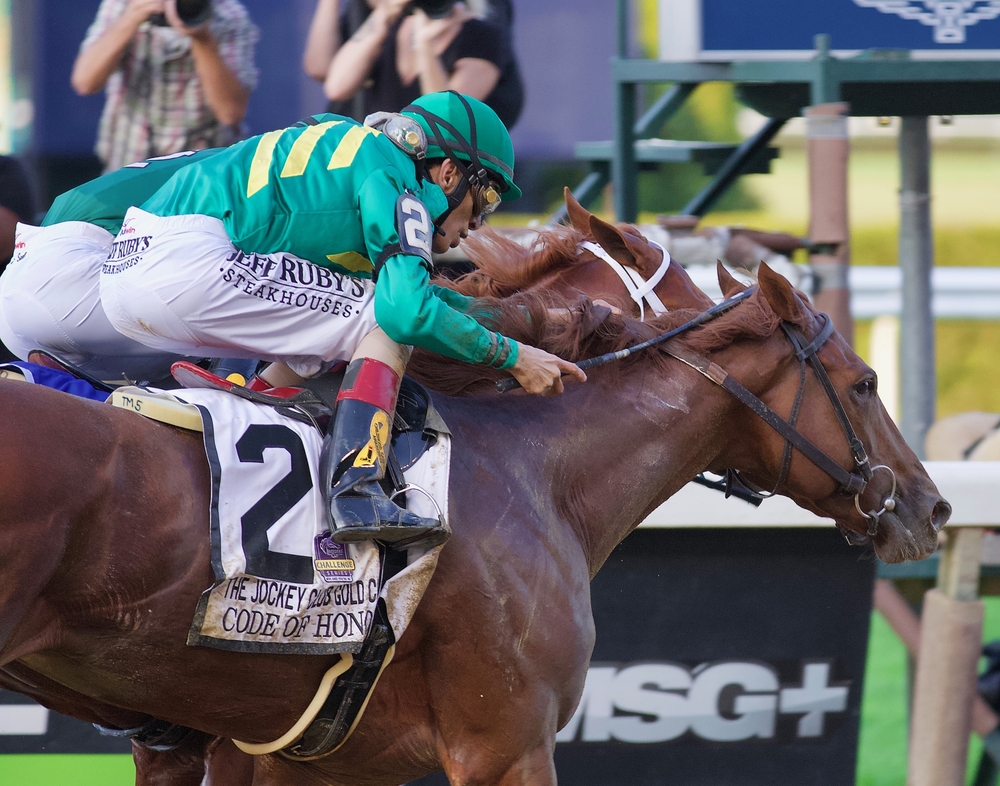Within the rich mosaic of British sport, horse racing stands out for its blend of deep-rooted tradition and the sheer excitement it generates. At the heart of navigating this sport through its current challenges is Julie Harrington, the Chief Executive of the British Horseracing Authority (BHA).
In recent times, the sport has found itself at a crossroads, with ethical, financial, and sustainability concerns casting long shadows over the racetracks. This blog aims to delve deep into the current predicament of British racing, scrutinising the influence of Harrington’s statements and leadership on the future of this beloved sport.
By examining her recent comments, we intend to explore the complexities facing the industry and ponder the critical question that echoes through the corridors of racing institutions and amongst fans alike: Is this the conclusion of British racing as we know it, or might it signify a rebirth, leading to a brighter, more sustainable future?
Need Help Beating the Bookies?
Our expert betting tipsters have been taking cash off the bookies since 2014! If you need a helping hand with winning then why not check them out?
Browse Our Tipsters
The Bookies Enemy
One of the Most Revered Tipsters on the Internet With 7 Years of Results
Visit PROFILEHorse racing, often referred to as the “Sport of Kings,” is an intrinsic part of British culture, representing a legacy of competition, elegance, and history. For centuries, it has captivated audiences, contributing significantly to the social and economic fabric of the nation. The industry not only fosters a sense of community and national pride but also plays a crucial role in the rural economy, providing employment and supporting local businesses.
However, this venerable sport faces numerous challenges that threaten its continued existence. Issues of racehorse welfare have sparked public debate, casting a shadow over the industry’s ethical standing. Financial pressures, exacerbated by changing gambling laws and fluctuating public interest, have put traditional racecourses under strain. Moreover, the sport struggles to attract younger audiences, competing with a plethora of digital entertainment options.
These challenges are not insurmountable, but they require a concerted effort from all stakeholders. Addressing them is crucial for the survival and prosperity of horse racing in Britain. The industry must evolve, adopting more sustainable practices, enhancing transparency, and engaging with new generations to ensure its legacy endures for centuries to come.
Julian Harrington’s Vision For British Horse Racing
At the helm of the British Horseracing Authority, Julie Harrington is a figure of paramount importance, tasked with steering British racing into a future fraught with both challenges and opportunities. Her leadership comes at a critical juncture, with the sport facing existential questions over its sustainability, ethics, and appeal to a new generation of fans.
Harrington’s vision for British racing is rooted in a balanced approach that prioritises animal welfare, financial stability, and innovation. Recognising the crucial role that horse welfare plays in the public’s perception and the sport’s legitimacy, she advocates for stringent standards and transparent practices. This commitment to welfare is seen as essential not just for ethical reasons but also for ensuring the sport’s future, as public scrutiny intensifies.
Financially, Harrington is aware of the need for British racing to adapt to changing betting landscapes and diversify its revenue streams. This could involve embracing new technologies and digital platforms to engage fans and open up new markets.
Innovation, particularly in engaging younger audiences and leveraging digital media, is also a cornerstone of her strategy. Harrington believes in harnessing social media and online content to showcase the sport’s excitement and heritage, making it more accessible and appealing to a broader demographic.
Her leadership style is collaborative, emphasising the importance of working together with stakeholders across the industry to drive change. This collective approach is crucial in navigating the complexities of modernising a sport deeply rooted in tradition while facing forward to embrace the future.

Current Challenges Facing British Horse Racing
The British racing industry faces a trifecta of challenges that threaten its traditional stature and future prosperity. Firstly, the ethical treatment of racehorses has increasingly come under scrutiny, with animal welfare groups and the public demanding higher standards and more transparency. This pressure is not just a moral concern but impacts the sport’s public image and acceptance.
Financial sustainability is another significant hurdle. The industry must navigate the complexities of a changing gambling landscape, where traditional betting revenues are no longer a guaranteed stream of income. This challenge is compounded by the economic fallout from global events, which has strained budgets and forced a rethink of revenue models.
Lastly, engaging a new generation of fans presents a unique challenge. In an age dominated by digital entertainment, horse racing competes for attention and relevance among younger demographics. This struggle for engagement is critical for the sport’s longevity, requiring innovative approaches to marketing, event management, and digital content.
Together, these challenges form a critical crossroad for British racing. Addressing them requires a concerted effort from all stakeholders, guided by a vision that respects the sport’s heritage while embracing change and innovation.
The Road Ahead For British Horse Racing
To navigate the challenges it faces, the British racing industry must embark on a path of transformative change, underpinned by innovation, inclusivity, and sustainability. The roadmap includes several key initiatives:
- Welfare Reforms: Implementing rigorous welfare standards and transparency practices to ensure the ethical treatment of racehorses. This involves not just regulatory changes but a cultural shift within the industry towards prioritising animal welfare.
- Financial Diversification: Exploring new revenue sources beyond traditional betting, such as digital platforms for streaming races, virtual racing, and leveraging the sport’s rich heritage in merchandise and experiences.
- Technological Innovation: Embracing technology to enhance fan experiences, both on and off the racetrack. This includes using social media and digital marketing to reach younger audiences and creating immersive experiences that blend the physical thrill of the race with digital engagement.
- Community Engagement: Strengthening the connection between the sport and its various communities, from local racecourses to international fans. Initiatives could include educational programs, community events, and partnerships with schools to foster a new generation of enthusiasts.
- Global Collaboration: Working with international racing bodies to share best practices, enhance global racing standards, and create cross-border racing opportunities that excite fans worldwide.
The success of these initiatives requires a unified effort from all industry stakeholders, guided by visionary leadership. The road ahead is challenging, but with a commitment to change, British racing can secure a future that honours its past while embracing a new era of excitement and sustainability.
Conclusion
As we stand on the precipice of potentially monumental change within British racing, it’s clear that the sport is at a critical juncture. The challenges it faces—ranging from ethical concerns around animal welfare to the imperative of engaging a new, digitally-savvy audience—demand innovative solutions and a commitment to evolution.
Under the stewardship of figures like Julie Harrington, and through the collective effort of the entire racing community, there lies an opportunity not just for survival, but for a renaissance. A future where British racing retains its cherished traditions, yet thrives through adaptation and modernisation, is within reach.
This pivotal moment asks of us all, stakeholders and fans alike, to consider what role we play in shaping the next chapter of this storied sport. Will we rise to the occasion and ensure that British racing not only endures but flourishes in the years to come?
FAQs
What is the British Horseracing Authority (BHA), and what role does it play?
The BHA oversees the regulation, governance, and development of horse racing in Britain, ensuring the integrity and sustainability of the sport.
Why is animal welfare a significant concern in British racing?
Animal welfare is critical due to ethical considerations and the sport’s public perception. Efforts to improve welfare standards are essential for the sport’s legitimacy and future.
How is British racing addressing financial sustainability?
Through diversification of revenue streams, embracing digital platforms, and innovating in areas like virtual racing and global broadcasting.
What initiatives are in place to engage younger audiences with British racing?
The industry is leveraging social media, digital marketing, and creating immersive experiences that blend traditional racing excitement with digital engagement.
Can British racing truly balance tradition with modernisation?
Balancing tradition with modernisation is seen as a pathway to sustainability, requiring innovation while respecting the sport’s heritage.
What does the future hold for British racing?
The future is envisioned as a blend of heritage and innovation, where improved welfare standards, financial stability, and broadened fan engagement lead to a renaissance of the sport.






Just a few thoughts having had the opportunity of visiting Ireland and enjoyed the racing scene there ….
The way to improve our racing industry is to take a leaf out of the Irish racing industry’s book.
With Punchestown festival tickets at 30 euros each they make their showcase event affordable for all. It doesn’t feel elitist, isn’t overcrowded and you feel welcome.
Their grass roots point to pointing is organised to promote and showcase their fantastic young horses which go on to make top money at sales in Britain.
Their breeding programmes still allow the amateur breeder to keep a mare or two with access to the top NH stallions and links to sales teams who prepare young stock for the sale ring in Ireland and Britain.